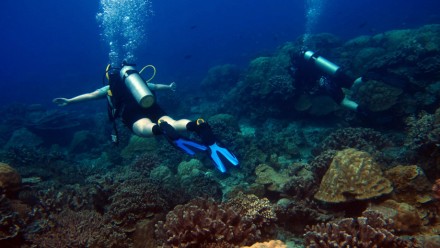Graduate Research in Ecology and Evolution
ANU has exceptionally strong academic programs in evolutionary biology. The Ecology, Evolution and Genetics research program is broad based, providing access to a wide range of technical facilities and intellectual perspectives to encourage inter-disciplinary research. It covers the full diversity of ecology (from pure to applied and mathematical to empirical), evolution (from population genetics to the evolution of life-history and behavioural traits), and phylogenetic systematics (from descriptive taxonomy to phylogenetic analysis based on morphological and molecular data).
Most of our staff are in the Research School of Biology, but there is a wide range of expertise in the Centre for Resource and Environmental Studies, and related areas within ANU and many of the Divisions of CSIRO. The staff have a wide range of professional experience including animal, plant and microbial ecology and evolution; behavioural, physiological and theoretical ecology; conservation biology; molecular evolution; population genetics; animal and plant systematics; information technology; environmental management; geography; and prehistory. In addition to Australia, they have experience in many parts of the world including Europe, Africa, North America and the Pacific region.
Students have access to a wide range of equipment, computing facilities, fieldwork opportunities and major national biological collections, such as the Australian National Insect Collection, the Australian National Herbarium and the National Wildlife Collection are also in Canberra. They are encouraged to take advantage of opportunities to collaborate with the rich and diverse community of biologists engaged in teaching, research, environmental management and policy formulation in the nation's capital.
Canberra is particularly well placed for ready access to a wide range of environments, including grasslands, semi-arid woodlands, sclerophyll forests, forest plantations, temperate rainforests, alpine herbfields, freshwater lakes, marine estuaries or mangroves and rocky intertidal areas. ANU also provides biological research facilities at two well-equipped field stations within three hours drive of Canberra. Some projects are conducted further afield in arid, tropical and subantarctic environments.
If you have any questions, please contact the potential supervisor directly, or the Convenor of the Graduate Program in Ecology, Evolution and Genetics (eeg.hdr.convenor.rsb@anu.edu.au).








